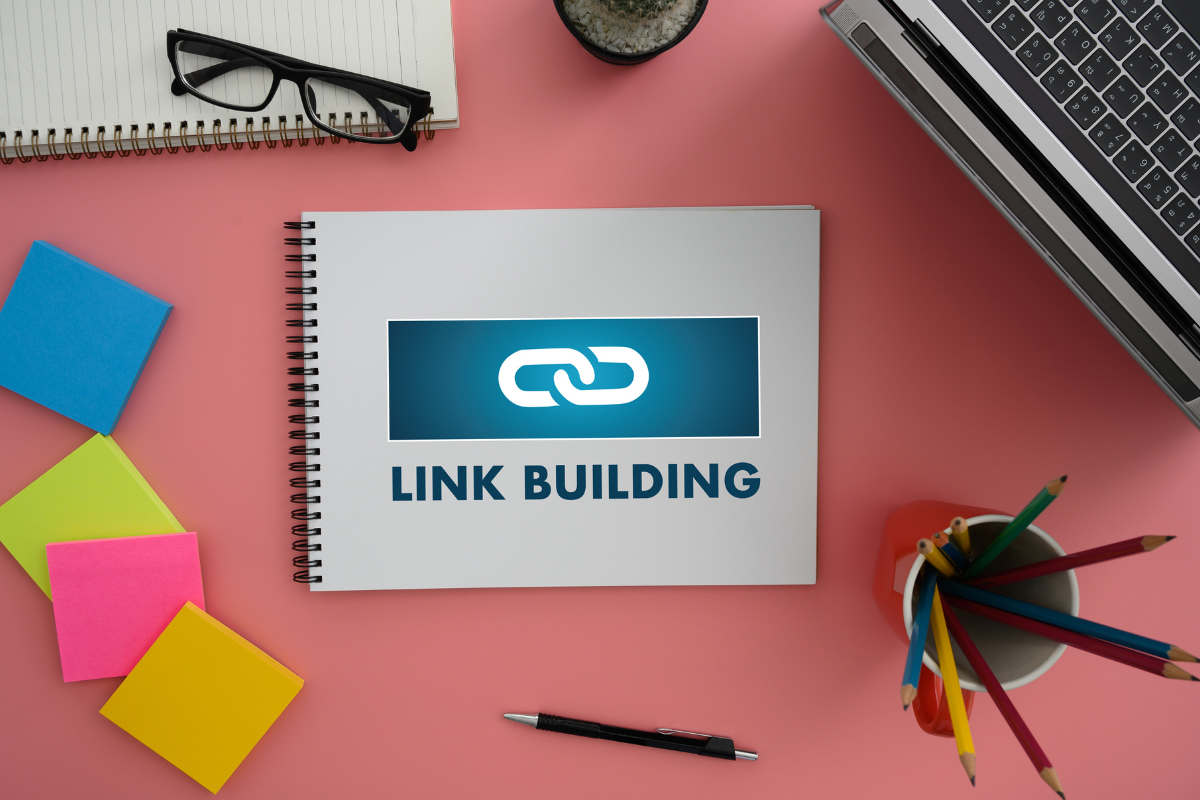
Post Title
Small Business Reputation Management: Protect, Promote, Prosper
November 24, 2024
The reputation of your business is crucial to its success, especially in the digital era. For small businesses, the stakes are even higher. Without a massive marketing budget or global brand recognition, a strong online reputation is your golden ticket to standing out. This is where small business reputation management becomes not just important, but essential.
In this blog, we’re diving deep into why reputation management for small businesses should be a top priority for every entrepreneur. We’ll explore actionable tips, proven strategies, and common pitfalls to avoid.
Now let’s jump in!
The Importance of Online Reputation for Small Businesses

When was the last time you bought something online without glancing at reviews? Exactly. For small businesses, your online reputation can make or break a customer’s decision in just moments. Here's why it matters:
- First Impressions Count: A whopping 93% of consumers read online reviews before making a purchase. Your reviews could be the deciding factor.
- Trust is Earned: A strong reputation builds trust and credibility faster than even the flashiest ad campaign. People trust what others say about you more than what you say about yourself.
- Cost-Effective Marketing: Positive reviews? They’re basically free advertising. Happy customers sharing their experiences online can do wonders for your visibility.
- Customer Retention: A good small business reputation doesn’t just attract new customers—it keeps your current ones coming back. Loyalty thrives when people feel confident in your brand.
If you’re not prioritizing your small business reputation management, you’re gambling with your brand’s future. Take control of the narrative, and let your reputation speak volumes about your business.
The Dos and Don’ts of Small Business Reputation Management
Managing your startup’s reputation might feel overwhelming, but it doesn’t have to be. A few smart strategies can make all the difference. Here's what you should (and shouldn’t) do to protect and grow your brand:
Do:
- Monitor your online presence regularly. Stay in the loop by checking reviews and mentions of your business often.
- Respond to all reviews, positive or negative. A thoughtful reply shows you care about customer feedback.
- Encourage satisfied customers to leave reviews. Happy customers are your best advocates—don’t hesitate to ask for their support.
- Be proactive about addressing complaints. Act quickly and professionally to resolve issues before they escalate.
Don’t:
- Ignore feedback or delay responses. Silence can be interpreted as indifference. Always engage.
- Post fake reviews to boost ratings. Dishonesty damages trust and can backfire.
- Argue with customers publicly. Stay calm and professional; heated exchanges rarely end well.
- Over-promise and under-deliver. Keep expectations realistic and always strive to meet or exceed them.
Small business reputation management isn’t about being flawless; it’s about showing you’re human, responsive, and committed to improving. Authenticity goes a long way in building lasting trust.
How to Monitor Your Brand's Online Presence Effectively?

Keeping tabs on what people are saying about your business online can feel daunting, but with the right tools and strategies, it’s completely manageable. Here’s how to stay ahead of the game when it comes to small business online reputation management:
- Google Alerts: Set up alerts to get notified whenever your business or related keywords are mentioned online. It’s free and easy to use.
- Social Listening Tools: Online reputation management services for small business like Visio Reputation Management can track conversations about your brand across social media and the web.
- Regularly Check Review Sites: Sites like Yelp and TripAdvisor hold immense power over your online reputation. Make it a habit to monitor them.
- Survey Customers Directly: Feedback forms and surveys can uncover valuable insights and address concerns before they appear publicly.
Proactive monitoring not only helps you stay informed but also enables you to respond quickly, build trust, and improve customer satisfaction. Remember, consistent vigilance is key to effective small business reputation management. Stay engaged, and your brand will thrive!
Strategies for Encouraging Positive Customer Feedback
Happy customers are often the quietest, but their positive experiences can be gold for your business. So how do you get them to share their stories? Here are some practical strategies:
- Ask Directly: Don’t overthink it! After a successful transaction or service, kindly ask customers to leave a review. Most people are happy to help when asked.
- Simplify the Process: Make it easy by providing direct links to your review pages, whether it’s Google, Yelp, or another platform. The less effort required, the more likely they are to follow through.
- Offer Incentives: Small perks, like discounts, loyalty points, or freebies, can motivate customers to leave feedback. Just ensure you’re complying with review site rules.
- Share Success Stories: Highlight glowing customer reviews on your social media or website to inspire others to share their experiences too.
In small business reputation management, collecting positive reviews isn’t just about boosting your ratings; it’s about building trust and showing potential customers why they should choose your business. A steady flow of great feedback strengthens your reputation and attracts more loyal customers.
How to Handle Negative Reviews Gracefully?

Negative reviews happen to every business. The key is not to fear them but to handle them with grace and professionalism. Here's a simple guide to turning criticism into an opportunity:
- Stay Calm: First things first—don’t react out of anger. A defensive or emotional response can escalate the situation. Take a deep breath before replying.
- Acknowledge the Issue: Show empathy and understanding by validating the customer’s feelings. A simple “We’re sorry you had this experience” can go a long way.
- Take It Offline: Invite the customer to discuss their concerns privately, whether through a phone call or email. Resolving issues directly shows you’re serious about making things right.
- Follow Up Publicly: Once the matter is resolved, post a thoughtful response to the review. This demonstrates accountability and reassures other customers that you care about quality service.
Negative reviews, when handled correctly, can actually enhance your reputation by showing potential customers how committed you are to resolving problems. Remember, small business reputation management is not about being perfect—it’s about being professional and authentic.
Reputation Recovery After a PR Crisis
No business is immune to a PR crisis, but how you handle it can define your long-term reputation. If you find yourself in the hot seat, here’s how to navigate the recovery process:
- Acknowledge the Issue: Don’t try to sweep it under the rug. Transparency is essential. Clearly recognize what happened to show you’re taking the situation seriously.
- Issue a Public Apology: A sincere, well-crafted apology can go a long way. Take responsibility for any mistakes and explain the steps you’re taking to ensure it doesn’t happen again.
- Focus on Positives: While addressing the crisis, don’t forget to share the good things your business is doing. Highlight positive news, such as community involvement or customer success stories, to reinforce your values.
- Monitor Progress: Pay close attention to public sentiment and feedback. Track online mentions, reviews, and comments to gauge how your efforts are being received and adjust your strategy if needed.
Recovering from a PR crisis as part of small business reputation management isn’t easy, but it’s possible with transparency, accountability, and a proactive approach. These steps can help rebuild trust and restore your reputation over time.
SEO Tips to Enhance Your Online Reputation

A strong SEO strategy does more than improve your visibility—it builds trust with potential customers. Here’s how to align SEO with your reputation goals:
- Optimize for Local SEO: Start by claiming and optimizing your Google Business Profile. Ensure your information is accurate and complete, including business hours, location, and contact details. This boosts local search rankings and credibility.
- Leverage Keywords: Incorporate targeted phrases like “best [service/product] in [city]” into your website and content. These keywords help search engines connect your business with customer searches.
- Publish Quality Content: Consistently share valuable content, such as blogs, FAQs, and how-to guides. This not only helps customers but also positions your business as an authority in your industry.
- Encourage Positive Reviews: Great reviews don’t just enhance your reputation—they can also improve your search engine rankings, making your business more visible to potential customers.
SEO and small business reputation management go hand in hand. By focusing on both, you’re creating a digital presence that’s easy to find, trustworthy, and credible. It’s an investment that pays off in visibility and customer confidence.
Online Reputation vs. Word of Mouth: How They Work Together?
Your online reputation and word-of-mouth marketing aren’t separate forces—they’re two sides of the same coin. Together, they create a powerful cycle of trust and visibility. Here’s how:
- Online Reviews Amplify Word of Mouth: When customers leave glowing online reviews, they essentially broadcast their recommendations to a larger audience. This fuels both digital and in-person conversations about your business.
- Social Media Shares: A single positive post or share on social media can reach thousands of potential customers in an instant. Happy customers sharing their experiences online magnifies your reputation and attracts new audiences.
- Customer Referrals: Satisfied customers naturally tell their friends and family about your business. These personal endorsements hold weight offline but often transition seamlessly into online interactions, such as tagged posts or shared links.
By nurturing your online presence and delivering an experience worth talking about, you create a synergy between digital reputation and personal referrals. Together, these elements form a small business reputation management strategy that builds trust, loyalty, and growth for your business.
The Role of Customer Service in Reputation Management

Customer service is the heart of small business reputation management. How you treat your customers can define how they talk about your business to others. Here are some best practices to keep your reputation shining:
- Train Your Team: Equip your staff with the skills to address complaints and resolve issues effectively. Empowered employees deliver better service and make customers feel heard.
- Be Responsive: Prompt replies to inquiries, whether through email, social media, or phone, signal that you value your customers' time and concerns. A quick response can often turn a negative situation into a positive one.
- Personalize Interactions: Nobody wants to feel like just another number. Use names, remember details, and show genuine care during every interaction. Customers appreciate businesses that go the extra mile to make them feel valued.
Exceptional customer service doesn’t just resolve problems—it creates loyal advocates for your brand. In the long run, your ability to consistently provide personalized, responsive, and professional service will set your small business apart and keep your reputation strong.
Why Responding to Reviews Matters for Your Business?
When customers take the time to leave a review—whether it’s a rave or a rant—your response shows you’re listening. Here’s why engaging with reviews is a must for your business:
- Engagement Builds Trust: Responding to reviews shows customers you value their feedback and are committed to their satisfaction. It humanizes your business and fosters credibility.
- Encourages More Feedback: When people see that you actively engage with reviews, they’re more likely to share their experiences, knowing their voice matters. This can lead to a steady stream of valuable feedback.
- Damage Control: Negative reviews are inevitable, but a thoughtful, professional response can soften the blow. Addressing concerns openly demonstrates accountability and your willingness to make things right.
Ignoring reviews is like turning your back on a golden opportunity. Every review—positive or negative—is a chance to strengthen your relationship with customers and showcase your dedication to improvement. Make responding to reviews a core part of your small business reputation management strategy, and you’ll see trust and loyalty grow over time.
Encouraging Repeat Business Through Reputation Building

Your reputation doesn’t just attract new customers—it’s a powerful tool for keeping them coming back. Here’s how to use it to foster loyalty and encourage repeat business:
- Loyalty Programs: Show appreciation by rewarding customers for their continued support. Whether it’s discounts, points, or exclusive perks, loyalty programs make customers feel valued and motivate them to return.
- Personalized Offers: Tailor promotions or discounts specifically for repeat customers. A personalized touch, like a birthday discount or a thank-you offer, shows you care about them as individuals.
- Stay Top-of-Mind: Maintain consistent engagement through email newsletters, social media updates, or even SMS messages. Share helpful tips, new products, or exclusive deals to remind customers why they chose your business in the first place.
A great reputation combined with consistent, thoughtful efforts turns one-time buyers into lifelong fans. Investing in small business reputation management not only builds trust but also strengthens relationships, ensuring customers keep coming back to your small business for years to come.
Proactive vs. Reactive Reputation Management
When it comes to managing your small business’s reputation, being proactive often delivers better results than reacting to issues after they arise. Here’s why:
- Proactive Management: This approach helps you build a strong foundation of goodwill before any problems occur. Consistently engaging with customers, encouraging positive reviews, and maintaining a visible, trustworthy presence online create a buffer. If something does go wrong, your existing positive reputation can soften the blow and make it easier to recover.
- Reactive Management: While necessary in some situations, a purely reactive approach often feels like damage control. Addressing issues after they’ve escalated can make your business seem unprepared or inattentive. Playing catch-up is never ideal, especially when public opinion is at stake.
The best strategy combines both approaches. Focus on proactive reputation-building through excellent service, consistent engagement, and monitoring. When issues arise, respond promptly and effectively with a reactive plan. Together, these methods create a small business reputation management strategy that’s both robust and adaptable, ensuring your business can handle challenges and continue to thrive.
Struggling with Negative Reviews? Let Visio SEO Help You!

Small business reputation management isn’t just about avoiding negative reviews; it’s about building trust, engaging with your audience, and fostering lasting relationships. The benefits are clear: more customers, higher sales, and a thriving business.
So, don’t let negative reviews hold you back. Partner with
Visio SEO and turn your reputation into a powerful asset.
Invest in your reputation today!
Contact Us
Contact Us
We will get back to you as soon as possible
Please try again later
Subscribe to Our Newsletter
Stay up to date with our latest offers and promotions by signing up now!
Contact Us
We will get back to you as soon as possible.
Please try again later.

We are the premier digital marketing solution in Elgin. Contact us today to get your free, no-obligation consultation!










